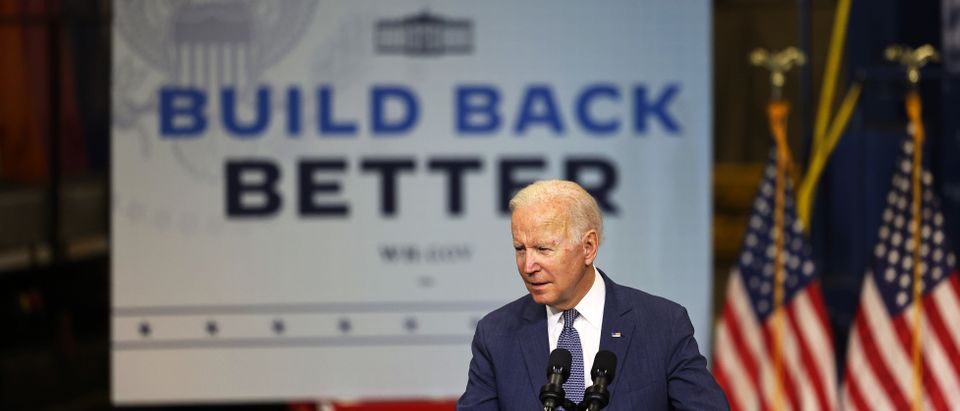Once it starts, inflation can destroy not only a nation’s economy but also its underlying social fabric.
Don’t just take it from me. No less an expert than the founder of the former Soviet Union, Vladimir Ilyich Lenin, explained that “[t]here is no subtler, no surer means of overturning the existing basis of society than to debauch the currency.” Lenin was correct.
Last month’s 6.8% inflation figure represents the fastest inflation pace since 1982. Now we have a 9.6% producer price index gain for November, the fastest growth ever recorded. These inflated wholesale prices will now work their way into retail prices, suggesting that high inflation will likely continue well into 2022.
To combat the 1982 inflation scourge, Federal Reserve Chairman Paul Volcker – with support from President Ronald Reagan – raised interest rates to an astounding 20%. Today, the Federal Reserve talks about tapering its monthly bond purchases and perhaps raising rates modestly. The Fed should act promptly to constrain today’s inflationary expectations.
The Biden administration wants Democratic West Virginia Sen. Joe Manchin and the rest of us to believe that his “Build Back Better” menu of expanded childcare tax credits, untargeted universal pre-K, lower prescription drugs costs, federally funded parental leave, climate-change subsidies, and on and on will actually lower inflation for most working Americans. The president also claims that his massive new spending package is fully paid for.
Not only is the president’s thinking profoundly uninformed by sound economic history and policy, it’s now at odds with two estimates provided by the nonpartisan Congressional Budget Office.
CBO’s first estimate, based on the House version of the BBB proposal, concluded that the package would produce deficit spending of some $367 billion over 10 years. Senator Lindsey Graham (R-SC) then asked CBO to price the BBB proposals without the “gimmicks” – in other words, to assume that the Democrats’ proposed phase-ins and phase-outs didn’t happen and that the BBB programs as proposed in the House-passed legislation were made permanent. With those assumptions, CBO estimates that BBB will now add some $3 trillion to the national debt between 2022 and 2031.
Forget CBO. You don’t have to be an economist or a budget analyst to appreciate the sleight-of-hand that Biden and his progressive allies are pursuing. Just follow the logic here, especially what the bill’s opponents describe as the “gimmicks” used to mask the real costs.
Most of the proposed social-spending programs last only a few years. They’d have to be reauthorized at some future time. Progressive Democrats know what they’re doing: hook people first on all the “freebies” to build political pressure against future budget cuts. BBB is a legislative Trojan Horse.
As President Biden often says, “here’s the deal”: to pay for these on-and-off-again programs as presented currently in his BBB legislation, revenue must be raised for an entire decade. Think about that for a minute.
The Democrats are proposing 10 years’ worth of tax increases and other gimmicks to pay for only a few years of program spending. Making these programs permanent will therefore necessarily entail revenue increases (or major offsets or more deficits) that extend well beyond the current 10-year BBB proposals.
Thus far, it’s mostly Republicans who oppose BBB. It’s time, however, that progressives consider the impact of this costly legislation and its overall impact on their efforts to promote more “diversity, equity, and inclusion.”
Decades ago, John Maynard Keynes, perhaps the 20th century’s most famous economist, described inflation’s impact in these words: “[t]he sight of this arbitrary rearrangement of riches strikes not only at security, but at confidence in the equity of the existing distribution of wealth.”
Inflation hurts our poorest citizens the most and is literally canceling recent wage gains for middle class and other workers throughout our economy. Moreover, BBB’s proposed state and local tax (“SALT”) provisions mean major tax reductions for the top one percent of taxpayers. There’s now a strong progressive case for stopping BBB before it unleashes even more inflation and creates further economic and social inequities.
In recent congressional testimony, Federal Reserve Chairman Jerome Powell recognized that today’s inflation rate has exceeded the Fed’s expectations and predictions. Inflation is no longer considered “transitory,” and the chairman no longer uses that word.
If today’s inflation rates continue, however, what’s likely to be “transitory” next year are the congressional Democrats’ House and Senate majorities, not to mention Joe Biden’s 2024 reelection prospects. There are now sound, bipartisan economic reasons for ditching BBB.
Charles Kolb served as Deputy Assistant to the President for Domestic Policy from 1990-1992 in the George H.W. Bush White House


